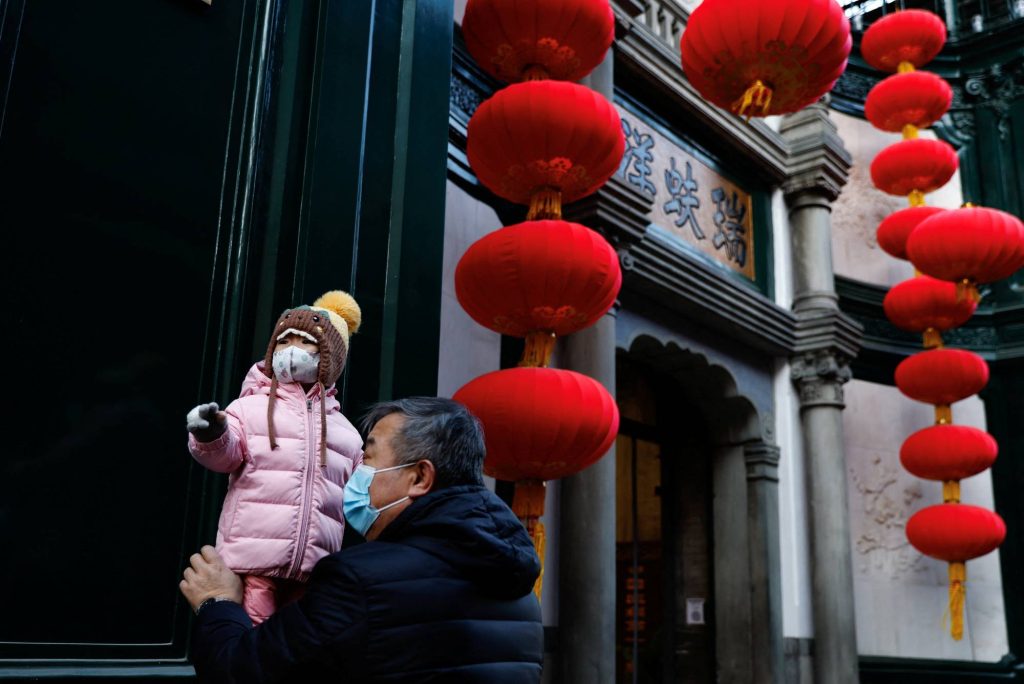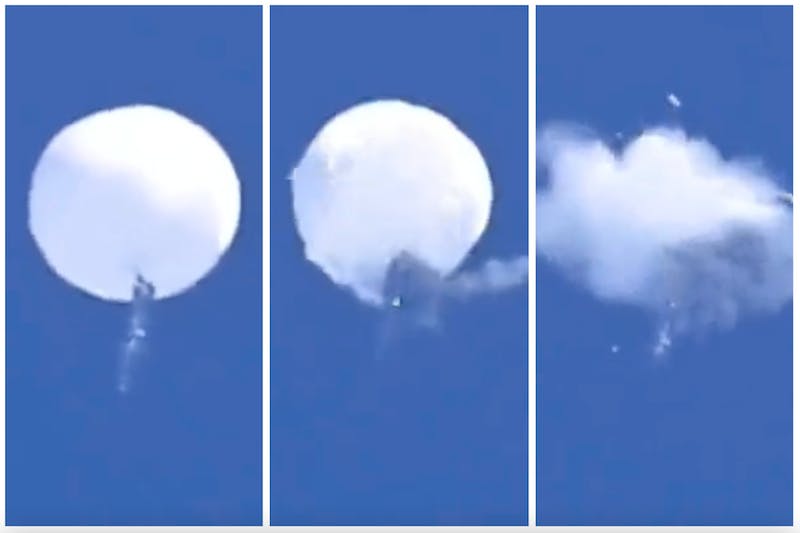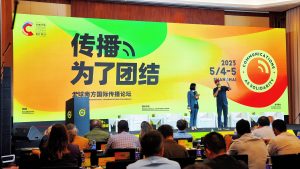
Here’s an excerpt from the transcript of a recent oral history interview with Mr.Wu Rongyuan:
After the retreat of the Kuomintang (KMT) to Taiwan, the CCP established the People’s Republic of China on 1 October 1949.
It was a time of life or death for KMT. To hold on to their last foothold, in Taiwan, KMT declared a martial law system that lasted 38 years.
Young friends from Taiwan and the mainland may not know that at that time, every day was spent in a state of hostility. We felt that cross-strait relations were extremely strained. Nowadays, we often talk about the complexity of cross-strait relations, but it was nothing compared to the period of the “anti-Communist martial law system”, which was filled with crisis.

How did cross-strait relations develop into such a confrontation? This was the biggest question puzzling us growing up. Why were we fighting fellow Chinese? Therefore, we made it our task to further understand why we should fight communists, and why cross-strait relations became so confrontational.
The main point of KMT’s martial law system was to ban people from joining the Communist Party, advocating for communist ideology, and organizing any sort of groups. Freedom of speech was out of the question. Strict censorship was imposed on the press and publishing. I would say that the most frustrating thing was the banning of discussions about socialist ideas. We had to be very careful with our words and not casually express any opinion. There were Anti-Communism posters everywhere, and spies were said to be lurking around us.
It was in that kind of closed-off environment that we young people searched for a way out. We wanted to find out what we truly believe in.
After rounds of discussions and contemplations, we zoomed in on why the Communist Party was able to drive the KMT out of the mainland. The KMT labeled the CCP as a rebel group. I asked if it was only a rebel group, how could it have gained the trust and support of millions of Chinese people and driven the KMT to Taiwan?
The wife of KMT’s founding father Sun Yat-sen, Soong Ching-ling remained on the mainland and even became the vice-chairman of the People’s Republic of China. If what the KMT said, that “The Communist Party is not good,” or “The Communist Party has stolen the Kuomintang’s governing position” were true, how could Soong Ching-ling stand by the Chinese Communist Party?

Therefore, all of these things made us rethink how the mainland should be portrayed in our history education. We gradually took our guard down when reading about communism and socialism. Moreover, the leftist socialist movement was a global trend back then, and we thought Taiwan should have its own socialist movement.
However, under the martial law, no one was allowed to openly engage in this kind of socialist movement, let alone organize any sort of group.
The stifling atmosphere under the martial law affected the everyday life of our generation.
So it became a natural progression that, in school, as our thinking matured, we students came together to form what is now called a study group (which was also not allowed at the time). In the study group, we discussed various ideas and organizations, and it naturally became a secret society.
We were young and bold and decided to choose communism as our ideological goal. We aimed at establishing a successful Communist Party at the university. I did wonder what could be called a Communist Party organization in a campus. Wasn’t that too ambitious a goal? But everyone said better to settle on a name at least and work toward this goal.
We were a group of youth with such passion, having witnessed people’s movements happening around the world, especially the student movement, we felt like it was our obligation to start something. But we didn’t have the basic theoretical knowledge. To engage in political struggle, you need weapons of thought.
We decided to utilize critical materials in our then education system, especially those taught to us in university about the “legacy of the founding father,” Sun Yat-sen. Many textbooks criticized Mao Zedong’s thoughts, criticizing the theory of new democracy, and the Communist Party theory. We wanted to comb through those materials and use them as learning resources. We all went to the library at National Chengchi University to obtain the books under control, which means they weren’t to be borrowed and we had to find ways to steal books from the library. We also listened to the mainland radio. There was no WeChat, and no internet, but mainland broadcasts to Taiwan were very common.
After listening to and recording the broadcast, we engraved it on a steel plate and print it out. There were no photocopiers at that time, and the first thing we printed out from the engraved steel plate was the Communist Manifesto, which wasn’t long, but we all thought it was the most worthwhile to study.
After we formed our organization, we of course wanted to expand it. However, the process took patience as it took time to vet people’s ideological tendencies. We reached out to all previous high school friends and classmates who we had vague impressions that might share our thoughts.
We reached out to other universities too. Our university was located in the south, and many of our high school classmates went to universities scattered in the middle and northern Taiwan. To reach out to them, we had to go to the middle and northern regions. Transportation fees were a huge burden for us poor students. Since there was no high-speed rail at that time, we found ways to avoid paying on regular trains operated by Taiwan Railways. We became skillful in fare evasion and found the safest and most effective way to avoid paying.
We eventually found ways to expand our organization into other schools. One day our comrades from other university told us that their school had posted reactionary slogans and we responded by cutting the flag-raising rope every Monday before the flag-raising ceremony, making it impossible to raise the flag the next day. This was a small, non-political destructive action that provided us with a sense of achievement.
We thought we were politically aware in the White Terror period, thinking we were clever and cautious. However, we underestimated Taiwan’s martial law system. This “anti-communist” regime was all-pervasive and well-connected in all aspects and levels of Taiwan’s society.
We knew that the CCP was able to defeat the KMT because forces from various social strata supported the CCP. The most important forces were the student movement and the worker-peasant movement. Therefore, after the KMT retreated to Taiwan, it learned to target student groups, youth movements, worker movements, peasant movements, and various social organizations. It deployed a large number of its informants throughout the social network. Any pro-China or pro-Communism expression would inevitably be detected, as could be testified by our classmates. To be honest, among the many students we contacted, there were probably informants who had already reported us to the authorities. It was up to the KMT as to when to arrest us.
We were arrested in a very special situation. It was in the 1970s when the United States, after Nixon took office, tried to win over Beijing to confront the Soviet Union. After Nixon took office, they made an effort to normalize the US-China relationship. In 1970, Taiwan authority was expelled from the United Nations, and in 1971, Kissinger arranged for Nixon’s visit to the mainland. The normalization of US-China relations was a huge blow to the Taiwan regime. The entire government was in a state of panic and therefore launched crackdowns in this panic mentality. So, we were arrested in early 1972.

We, a group of youngsters, were fighting against a spy government with decades of experience cracking down on the Communist Party. We all knew it was a dead end with no way out, a battle of hitting rocks with eggs, but we went ahead as we were engulfed with passion and faith.



